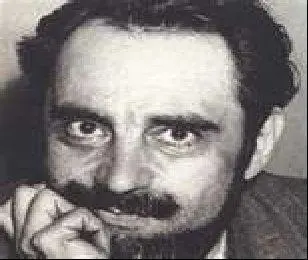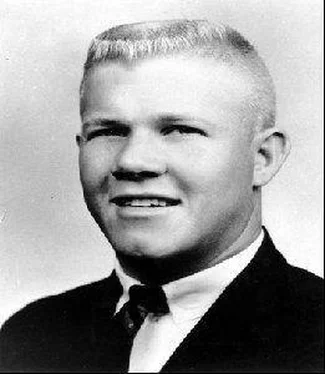Swango, however, had scented that the trap was about to be set and crossed the border into Zambia and then Namibia where he found temporary medical work. In March of 1997, he applied for a job at the Royal Hospital in Dhahran, Saudi Arabia, using a counterfeit résumé. While all this was taking place, Veteran Affair’s Criminal Investigator Tom Valery consulted with Dr. Charlene Thomesen, a Forensic Psychiatrist, to help him with the case. She was able to analyze documents and data, and formulate a psychological profile of Dr. Swango, giving her evaluation of why he had committed such horrific crimes. Tom Valery was called by the FBI to discuss holding Swango. Valery then called Drug Enforcement Agency Agent Richard Thomesen who was stationed in the Manhattan DEA Office to discuss the investigation. Thomesen's conversation focused on Swango lying on his government application to work at the Department of Veterans Affairs, where he prescribed narcotic medications. This, and other proof, was sufficient for Immigration and Naturalization Service agents to arrest Swango in June of 1997 during a stopover at Chicago’s O'Hare International Airport on his way to Saudi Arabia.
Arrest for Fraud
Faced with stiff evidence of his deceitful activities and the possibility of an extended inquest into his time in Zimbabwe, Swango pleaded guilty to defrauding the government in March of 1998 and in July was sentenced to three and a half years in prison. The sentencing judge ordered that Swango not be permitted to prepare or deliver food, or have any association with the preparation or distribution of drugs. He was charged with no counts of murder at this point, however. Not yet anyway. The FBI wanted to get their ducks in a row before charging him for his killings and needed hard evidence.
While Swango was serving his time, the fed’s accumulated a substantial dossier of Swango's crimes. As part of that investigation, prosecutors obtained a warrant to exhume the bodies of three of his former patients and found poisonous chemicals in them. They also found indications that he had paralyzed Barron Harris, another patient, with an injection; Harris later lapsed into a coma and died. Furthermore, prosecutors found evidence that Swango had lied about the death of Cynthia Ann McGee, a patient to whom he had been attending while employed as an intern at OSU. Swango claimed she had suffered a heart blockage, but he had in fact killed her by injecting her with potassium that congested her heart. On July 11, 2000, less than a week before he was scheduled to be released from prison on the fraud charge, Federal prosecutors on Long Island, New York, filed a criminal injustice charging Swango with three counts of murder, one count of assault, and one count each of false statements, mail deception, and conspiracy to commit wire fraud. At the same time, Zimbabwean authorities charged him with poisoning seven patients, five of whom had died.
Murder Charges, Sentence
Swango was officially indicted on July 17, 2000, and insisted that he was not guilty. On September 6, however, he capitulated and pled guilty of murder and fraud charges. Had he not done so, he faced the possibility of the death penalty and extradition to Zimbabwe. At his sentencing trial, prosecutors read shocking passages from Swango's notebook, describing the elation he felt during his crimes. Judge Mishler sentenced him to three consecutive life terms. He is currently incarcerated at The United States Penitentiary Administrative Maximum Facility (ADX) in Florence, Colorado. The FBI believes he may be responsible for as many as sixty deaths, which would make him one of the most inexhaustible serial killers in American history.
Dr. Marcel Petiot

Born: January 17, 1897
Place: Auxerre, France
Killing Span: 1926 – 1944
Number of Killings: 60 plus
Captured: February, 1944.
Background
Marcel André Henri Félix Petiot is a former doctor and French Serial Killer. In 1944, he was convicted of numerous murders after the remains of twenty-six people were unearthed in his home in Paris. He is suspected, however, of killing about sixty people during his life, although the actual number remains unknown.
At seventeen, a psychiatrist diagnosed Petiot as mentally ill. As a boy, he was expelled from school many times. He did, however, finish his education in a special conservatory in Paris in July of 1915.
During World War I, Petiot volunteered for the French army and entered service in January of 1916. In the Second Battle of the Aisne, he was injured, gassed, and exhibited further symptoms of mental collapse. He was sent to various rest homes where he was arrested for stealing army blankets and eventually thrown into jail in Orléans, France. In a Psychiatric Hospital at Fleury-les-Aubrais, he was again diagnosed with assorted mental ailments, but was returned to the front in June of 1918, just before the war ended. He was transferred again only three weeks later after he shot himself in the foot, but attached to a new regiment in September. A new opinion of his mental condition was enough to get him discharged with a disability pension.
After the war ended, Petiot entered the accelerated education program proposed for war veterans. He completed medical school in eight months and became an intern at the Mental Hospital in Évreux. He received his Medical degree in December of 1921 and relocated to Villeneuve-sur-Yonne, where he received payment for his services from both his patients and government medical assistance funds. At this point, he was constantly abusing addictive narcotics, and acquired a reputation for questionable medical practices such as supplying narcotics, and performing illegal abortions.
Petiot's first victim is thought to have been Louise Delaveau, the daughter of an elderly patient, with whom he’d had an affair in 1926. Delaveau disappeared in May and neighbors later recalled that they had seen Petiot load a trunk into his car. Police investigated, but ultimately dismissed Delaveau as a runaway. That same year, Petiot ran for Mayor of the town, and hired an assistant to disrupt a political debate with his opponent. He won the election, and embezzled town funds while in office. In 1927, he married Georgette Lablais and together they had a son named Gerhardt.
The Prefect of Yonne Département received many complaints about Petiot's thefts and shady financial deals. Petiot was eventually suspended as Mayor in August of 1931 and subsequently resigned. He still had many supporters, however, and the village council resigned in commiseration. Five weeks later, on October 18, he was elected as a councilor of Yonne Département. In 1932, he was accused of stealing electric power from the village and he lost his council seat.
Meanwhile, Petiot had already moved back to Paris. There, he attracted patients with made-up credentials, and built an impressive status for his practice. There were rumors, however, of unlawful abortions and unnecessary prescriptions for addictive remedies. In 1936, he was appointed médecin d'état-civil, with authority to write death certificates. That same year, he was briefly institutionalized for kleptomania, but released the following year.
When Germany defeated France in 1940, French citizens were drafted for forced labor in Germany. Petiot presented fake medical disability certificates to people who were drafted. He also treated the diseases of workers that had returned. In July of 1942, he was convicted of overprescribing narcotics, even though two addicts who would have testified against him had disappeared. He was fined 2400 French Francs for his crimes.
Читать дальше













